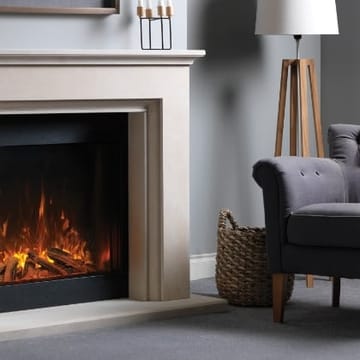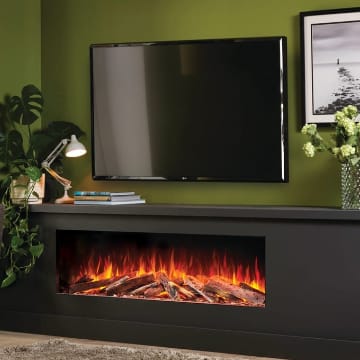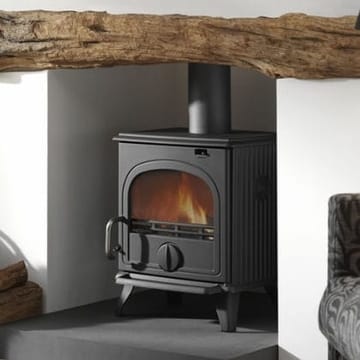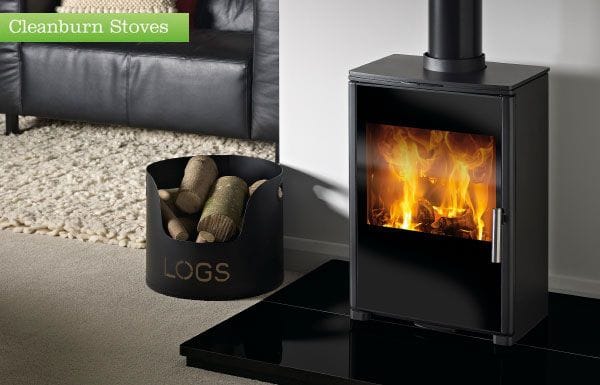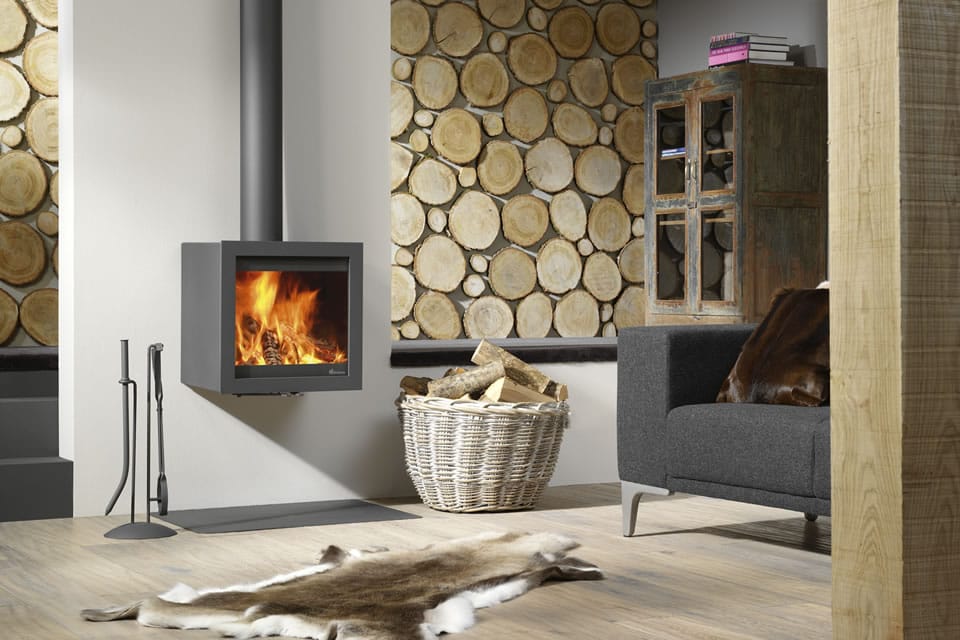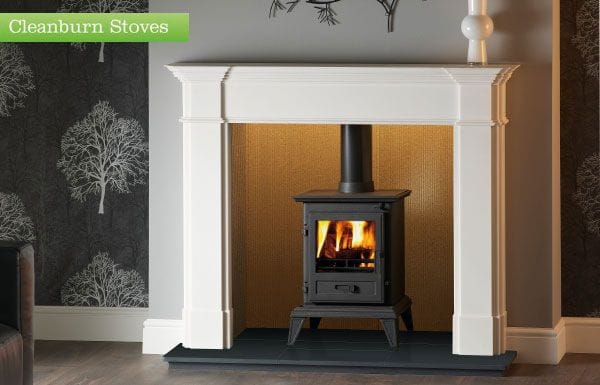
Stove Costs and Savings
Wood-burning stoves
With energy bills set to increase over the coming years, many home owners are starting to think of ways to make their homes energy efficient.
Stoves of all types are becoming increasingly popular as more people view them as greener and a great way to save on energy bills. Here we will help you make an informed decision about the cost of installation and the cost of running your stove so you can compare it to other energy sources.
According to the Stove Industry Alliance (SIA), a wood burning stove is 77% cheaper per kilowatt hour (kWh) to run than an electric fire, 29% cheaper than a gas fire, and around 43% cheaper than oil and 50% than LPG fires.
There have been many surveys carried out that suggest 53% of those surveyed felt their stoves saved them money, but the initial lay out for installation and the cost of the stove was higher than they thought it would be.
Stove Costs
The cost of a stove is determined by whether it is a log burner, multi-fuel or pellet stove, as well as the size and wattage needed, which ranges from 3kW to more than 15kW. A 5kW is considered the average size of a stove to heat most UK homes. This can vary depending on where you want them placed, ventilation and size of room. Then there is the additional cost for designer brands or added features, designer brands are popular as stoves tend to be a feature of a room.
Below, we have given you a rough idea of the cost of each type of stove:
- 5kW log burner -costs around £470
- 10kW log burner -costs around £800
- 5kW multi-fuel - costs around £330
- 10kW multi-fuel - costs around £400
- A boiler stove (a stove with a boiler included or attached) will cost around £1,000 - £2,000
- A pellet stove can cost between £1,000 and £4,000 depending on the size. The cost is mostly due to the need for electricity to power them as they have an automatic system feeding the pellets into the stove.
Stoves also come with varying features which some stove owners couldn't live without, have a read of our article about multi-fuel stoves vs log burners, and our guide to buying a stove to help you decide what you need.
Stove Installation Costs
On average it costs £1,500 to install a stove
According to the Stove Installation Alliance, installation costs can vary between £750 and £2,000. But the average installation cost is £1,500.
Installation can cost more if the following issues arise:-
- The chimney needs to be relined because gasses could escape into the home
- The chimney needs some work and is tall so scaffolding is required
- There is no chimney so a flue has to be installed
- Ventilation needs to be fitted in the room - this is a building regulation requirement
- Luxury product
Problems can be found during the survey of your chimney, it is always best to get three quotes, some installers may charge for this, others don't, so have a good shop around. Ask for a written confirmation of what is included in the quote, this will make it easier comparing costs.
Fuel Costs
Lots of people are put off of changing an energy source or supplier because they can't work out weather they will save any money. Hopefully we can help you work out the cost of burning fuel on a stove.
Of course the cost of fuel will depend on the type of fuel you choose to burn, and this will probably be determined by what you have access to, how easily you can store it and whether you live in a smoke-controlled area.
The amount of wood you can expect to burn each year depends greatly on the type of wood you use and the wattage and efficiency of your stove, the number of hours you need to burn your stove for and the overall energy efficiency of your home. However, it is estimated that people use around three to four cubic metres of wood a year.
When it comes to prices of wood this can also vary depending on the supplier and region so our costs are estimates. Have a look for costs in your local area before you make your final decision.
Estimated cost of wood:-
- Freshly cut logs - around £80 per cubic metre
- Seasoned logs - around £110 per cubic metre
- Kiln-dried logs - around £130 per cubic metre
- Wood pellets are usually sold by the kg and cost around £120 per 250kg (500kg is roughly equivalent to one cubic metre).
Types of logs and their kWh
Freshly cut logs can appear cheaper to buy, but they have between 60% - 80% moisture, they will only give around 1kWh per kg.
Seasoned logs have around 40% moisture so give an output of 3kWh per kg.
Kiln-dried logs have around 20% moisture giving a respectable 4.5kWh output per kg.
The less moisture in the log the more efficient they become. Then there is the maintenance costs involved with having a stove, it is recommend that you have your chimney swept at least once a year, some recommend twice a year, but it is best to speak to a local chimney sweeper for advice. The cost of having a chimney swept is between £60 - £120 a year. Pellet stoves also need to be serviced, costing around £200 a year.
How much will I save on Energy?
Here we can provide rough calculations on how much a stove can cost to buy and run, and how much it could save you. But as every home and stove is very different, especially in the wattage it needs, the amount and type of wood used, and your family's lifestyle, it is hard to get an accurate answer.
Before speaking to an installer follow the steps below to get an estimate of how much a stove could cost you and save you in energy bills. At least it will give you something to compare the installer's quotes too.
1. The Stove
Choose between a log burner, multi-fuel or pellet stove, once you decide you will be able to work out the rough cost of the stove itself.
2. The Fuel
Choose which fuel you prefer, firstly check out what is available in your local area and how much it will cost, also remember to check if you live in a smoke controlled area.
3. Stove Wattage
Work out what wattage you will need your stove to perform at. The average is 5kWh, but the bigger the room, the bigger the wattage will be. The wattage can also be impacted by the level of insulation you have in your home, the better the less wattage needed.
As a rough guide, multiply the height, width and length of your room together and divide this by 14.
4. Stove Installers Quotes
Make sure you get three quotes for stove installation, all in writing. Some charge for a survey and some don't, so shop around.
5. Hours of Usage
Now consider how many hours a week you plan on using the stove
Example:
- 4 hours each evening Monday - Friday.
- 12 hours at the weekend
- Equals 32 hours a week
Now you have the cost of the stove, installation, the fuel you wish to use and how many hours you plan to be using it, you can make a rough estimate of how much it will cost you and how much money you are likely to save in the long term.
Stove Cost Calculations
Stove Output and Hours of Use
Take the rough calculation for the stove output and multiply that by the number of hours a week you will be using it. This will give you the number of kWh you'll use a week.
- 5 kW x 32 hours = 160 kWh per week.
Now times that by 24 (the number of weeks over the winter that you'll be using it) = 3,840kWh a year that your home will produce if you run the stove at full capacity for that number of hours.
Fuel output and amount you need
As an example we will use the cost of Kiln-dried logs - around £130 per cubic metre - 4.5kWh per kg
- 3,840kWh a year / 4.5kWh per kg of kiln-dried logs = 853kg.
Now to work out the cubic metres and the cost you need to divide the number of kg you have just calculated (500kg is roughly equivalent to one cubic metre)
- 853kg / 500kg = 1.71 cubic metres.
Now multiply that figure by the cost of one cubic metre of the wood you plan on using. Kiln-dried wood is £130.
- £130.00 x 1.71 = £222.30 a year to run.
Energy bill
To find out if you are saving on your yearly energy bills you now need to do a comparison.
Take a look at your current energy bills to find the cost per kWh, you can either work this out by dividing your yearly spend by the kW you use in a year, or call your supplier who can tell you what the figure should be. Some suppliers now show this figure on their bills.
According to Ofgem, the average cost of electricity is just under 16p whereas gas is just under 5p.
Multiply the costs per kWh of electricity or gas that you currently use (see your bill) by the number of kWh you think you will need for the room the stove will be in.
- 3,840kWh x 16p = £614.40
Compare this cost to the cost you calculated for kiln-dried wood
- £614.40 - £222.30 = £392.10 cheaper per year.
This is a substantial saving!
If it costs £2,000 to purchase and install the stove it would take at least 5 years before you start reaping that saving, and that doesn't include maintenance costs.
- £2,000.00 / £392.10 = 5 years
Our estimates are worked out on running a stove at full capacity all the time. You are unlikely to do this as you would turn your stove down once your room became hot. Also stoves can only achieve an 80% efficiency.
Our workings also assumed you only have your stove on and not your usual heating system for the period of time calculated.
Hopefully this will give you a rough guide as a starting point before you speak to an installer, such as Phoenix Fireplaces, who can then give you more of an idea based on your home and lifestyle.
If you decide you still want a stove why not print off our helpful stove-buying checklist.
Phoenix Fireplaces surveys properties, supplies and installs all types of stoves, visit our website to see some of the beautiful designs we provide.
Further Reading:-
multi-fuel stoves vs log burners
buying a stove
